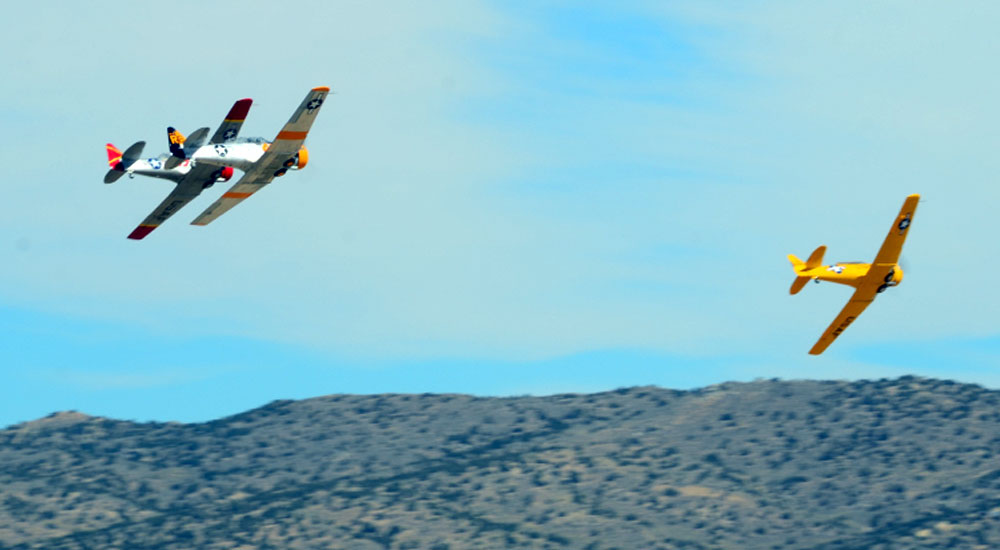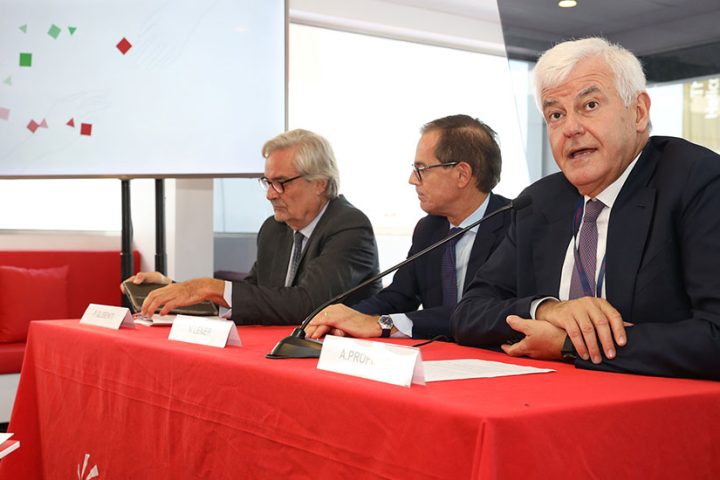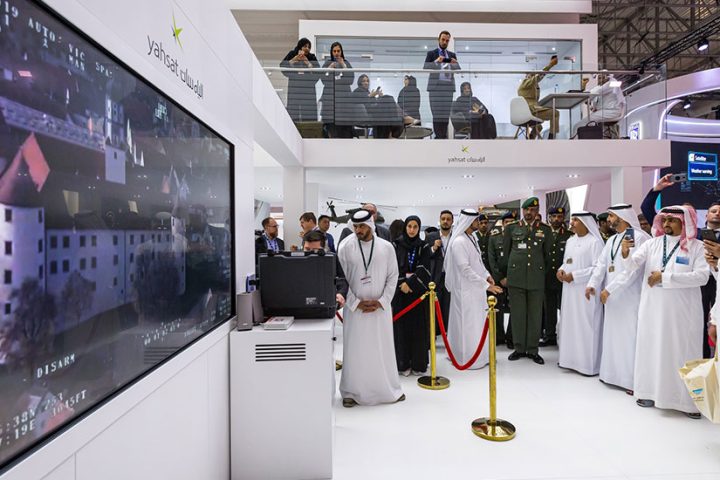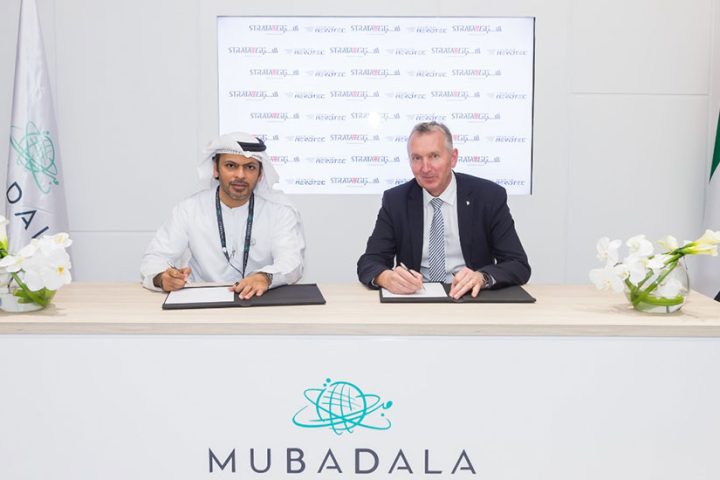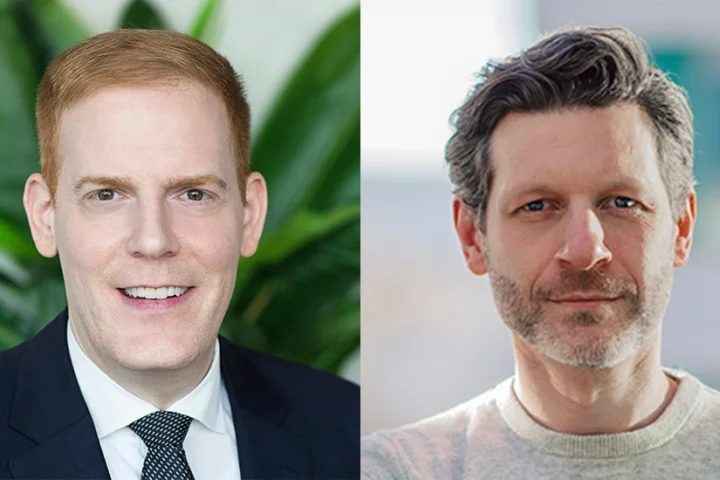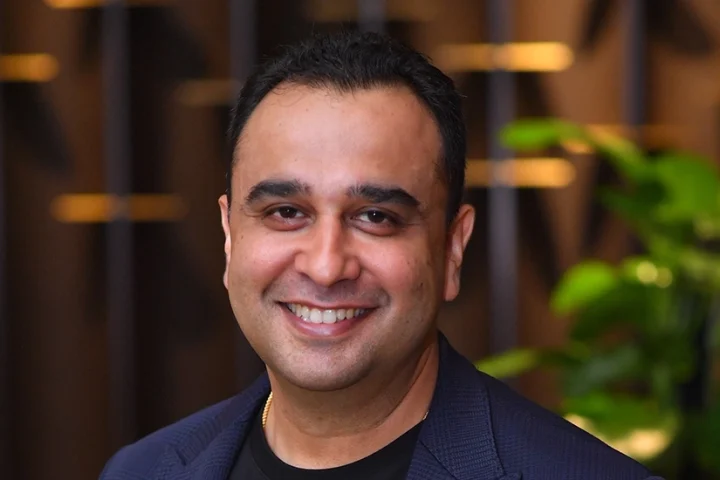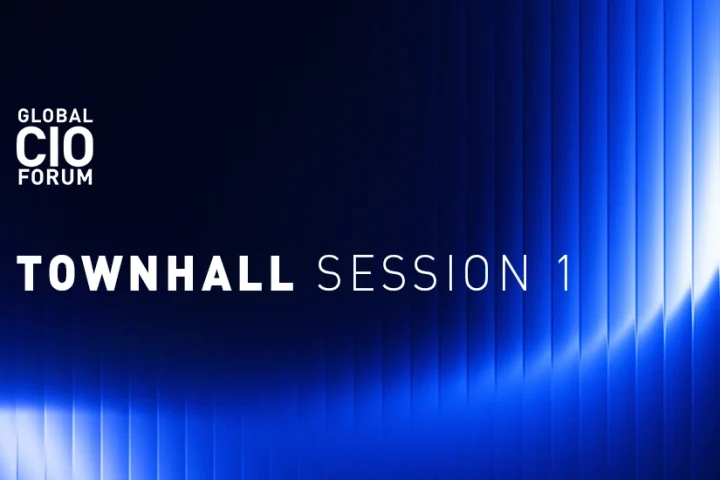Eight teams have been announced to contest the world’s first electric air race, Air Race E, in the fall of 2020. The teams will make history when they line up on the grid in their custom modified electric race planes, to fly wing-tip-to-wing-tip in what will be a significant milestone for the aviation industry.
Air Race E CEO and Founder, Jeff Zaltman, asserts the series will be a unifying platform for the development of cleaner, faster and more technologically advanced electric aircraft. The racing series will provide a testbed for innovation and accelerate the journey towards electric commercial travel.
Air Race E made the announcement today from the Dubai Airshow where the world’s first electric race airplane has been unveiled on a display in association with the series’ Official Founding Partner, Airbus. The plane belongs to the UK team, Team Condor, led by Martyn Wiseman of North Yorkshire. Together with his crew, Martyn has spent the past few months converting the Cassutt aircraft into a fully-electric racing machine, utilising a Contra Electric twin motor and contra-rotating propeller powertrain.
Team Condor will be competing with seven other teams from throughout Europe and North America to take the inaugural Air Race E title at a host venue to be announced in the coming months.
The race will be the first in a series of head-to-head international air races, showcasing the skills, expertise and ingenuity of the best pilots and engineers from around the world. Unlike similar racing events which operate on a time trial basis, Air Race E events will see eight planes fly simultaneously around a tight 5km circuit at just 10m above the ground and at speeds of up to 450kph, faster than any land-based motorsport.
The customised electric motors will enable the planes to fly with a max continuous power set at around 150kW, according to the electric formula. Teams will make use of lithium batteries installed under the fuselage of their planes to provide power for five minutes of high intensity racing and around 10 minutes of reserve flying at reduced power.
Air Race E will be a unifying platform for cleaner, faster and more technologically advanced electric aircraft
The teams are as follows:
Team Beta Technologies Racing, USA
Team Blue-BETA Racing, based in Vermont, USA, is a partnership between propulsion and control system company BETA Technologies and, the advanced composites company, Blue Force Technologies, with Kyle Clark who’s the CEO and team leader of BETA.
Having already put an eVTOL in the air while also designing and building the world’s largest electric aircraft to have flown, Blue-BETA is now turning their attention to developing a plane for Air Race E.
Their plane, which is currently known as BB-23, will feature a battery system comprised of pouch-type lithium ion cells assembled into a pack with a custom battery management system, derived from their eVTOL programme.
Team Outlaw, Canada
Team Outlaw is bringing experience from formula one air racing to the new electric sport of Air Race E. With pilot and Team Leader Scott Holmes in the cockpit, the Canadians are adapting their 1993 Cassutt to be able to fly with electric power.
Scott has had his pilot’s licence since he was just 17-years-old and began racing at Reno and with Air Race 1 in 2016, competing at the World Cup in Thailand and the China Cup in Wuhan.
Based at Villeneuve Airport in Edmonton, Scott has a close-knit team backing him on the project to turn his plane, Outlaw, so named because it doesn’t follow many of the airworthiness standards in Canada, into an electric air racer.
His crew includes; Bob Holmes, Kelly Green, Michelle Holmes, Eldon Gjesdal, Brian Murray and Karen Holmes. His development engineers are Roslynn Ricard, Seth Itow, Eric Tischer and Thomas Lockwood.
Having designed, built and modified racing airplanes for many years, Air Race E is business as usual for Team Outlaw, who have support from Precizion Services, Energy Efficient Homes, Arkk Engineering and ViScan Inspection Services.
Team Scramasaxe, France
Based at Aérodrome de Cuers-Pierrefeu in the south east of France, Team Scramasaxe is led by Eric de Barberin-Barberini, a former fighter pilot who has set five aviation world speed records in his aircraft, Shark.
Team Scramasaxe, named after a short sword used in the early French Middle ages, is looking forward to the challenge of electric air racing, mixing new technology, speed and competition.
During the development phase, Eric is working alongside fellow team members Didier Ledoux, Frederic Maunier and Henri Giordano to build a plane which is derived from his award-winning Shark Ultra Light.
Currently named Scramasaxe E project, in prototype, modifications include a tricycle landing gear incorporating a retractable front wheel, while the air foil will be modified to sustain speeds as high as 500km/hr.
Team Möbius, USA
Team Möbius, based in Fort Worth, Texas, is led by Carl Copeland, a serial entrepreneur and CEO of MμZ Motion whose company produces custom, high-performance motion solutions for the robotics market.
With a life-long passion for aviation and aerospace, Copeland recognised a significant opportunity to bring his knowledge and expertise to Air Race E, linking up with fellow aviation enthusiast and pilot, Christopher Williams.
Initially for the first year of Air Race E, Möbius, named after the möbius strip infinity loop, plans to modify an existing formula one racer to use with their electric power system.
Their plane is still in the very early stages of development and has yet to be given a name, but the intention is to use a new type of electric motor, designed by MμZ Motion, that is smaller and lighter than current electric motors.
In the future Möbius hopes to introduce a more customised aircraft with innovative profiles, control mechanisms and advanced propeller designs.
Team Hangar-1, Germany
Based at facilities in Oldenburg-Hatten and Leer-Papenburg in northern Germany, Team Hanger-1, named in conjunction with their main sponsor Flugwerft Hangar-1 GmbH, is led by the company’s CEO Adrian Schmer, SEP and aerobatics instructor.
Schmer’s team working on the developments of their plane, Eline Tjaden, Chris Höland, Jakob Møller and Ingo Seidl, are self-confessed aviation junkies excited by the challenge of Air Race E.
They have a concept for their aircraft and are currently looking at the options of modifying a Cassutt IIIM or Sonerai I Formula Vee plane, integrating an electric engine made by Geiger Engineering, to become their eventual racer. It will be called Skyflash One, named after their aerobatic flight school Skycrobatics.
The Hangar-1 Crew, as they are affectionately known, are also working on their business plan to look for technical partners for the team.
Team Allways Air Racing, USA
Team AllWays Air Racing is based in California, USA and has pilot and captain Casey Erickson at the helm. She is a certified flight instructor and has flown many different types of aircraft, including commercial fixed wing, helicopter and sUAS aircraft, and also has a private glider rating.
Having piloted in aerobatics competitions, she was side-lined by a back injury, so in 2008 started racing in the biplane class at Reno. Casey also owns a formula one air race plane.
After talking to a number of different aircraft designers, Casey and her team decided to work on a derivative of the Snoshoo, an American home-built formula one racer designed by Alan VanMeter and AJ Smith. The Allways Air Racing Snoshoo SR1.1 will be named The Gulf Oil Racer and is being developed at Redlands Airport, near San Bernadino.
Casey is being supported by a team that includes AJ Smith, who built the airframe and carbon fibre shell, Craig Catto, who built the tail group and prop, and Grove Aircraft, who built the landing gear and braking system. Bobbi Graham and Jason Cowls will also be involved.
The team is still in the initial assembly phase and plans to have a completed aircraft to begin engine runs in early spring 2020.
Team NL, Netherlands
When Dutchman Rick Boerma heard about Air Race E and their exciting project, his first option was to launch his own team. So, along with a group of engineering graduates, Team NL is building a new aircraft for the race, completely from scratch.
Boerma, a life-long aviation fanatic, started flying gliders at the age of 14 and, while studying aerospace engineering at university, began to dream of designing and building his own aircraft.
Now, that dream is turning into a reality, development has begun of the as yet unnamed plane, which has adopted the moniker Fanta due to its orange colour. The aircraft will feature a conventional low-wing design with two electric motors that power two contra-rotating propellers.
Team Condor Racing, UK
Martyn Wiseman, managing director of Condor Aviation International, is the leader of Team Condor, based in Barlby, North Yorkshire, England.
Born and raised in Zambia, Martyn has been involved in aviation for over 20 years, initially as a hobby and, more recently, as a professional operation. His company specialises in R&D and aircraft modification and will use Air Race E as a platform to showcase their skills, as they help to develop green aviation technology.
For their electric air racer, Team Condor has used an existing airframe, completely revamping the engine cowling to incorporate items such as a contra-rotating propeller system, electric motors, inverters and radiators.
At their team headquarters, where they have their own airfield with 600m runway, their attention is currently focused on the battery technology and how they can integrate this into the aircraft.
Martyn has a strong group supporting the developments of White Lightning, with principal engineer Dean Speight; senior design engineer Oliver Riddle being helped by Charlotte Jennings; assistant design engineer and Benas Laurinavicius, undergraduate engineer.
They have also had input from local work placement students and apprentices, who have provided an invaluable contribution to the project, while sponsorship backing comes from Potenza Ltd, Contra Electric Propulsion and Teesside University.
Speaking from the Dubai Airshow, Zaltman said, “These eight teams really are at the cusp of innovation in the electric aviation space and will play an important part in creating cleaner future air travel. We’re proud to provide them with a platform to put their technology to the test and see far reaching benefits to the aviation industry as a whole as we edge closer to making commercial electric flight a reality. We can’t wait to see them take to the air next year and we encourage sponsors to continue to get involved and support more teams vying to take part.”



